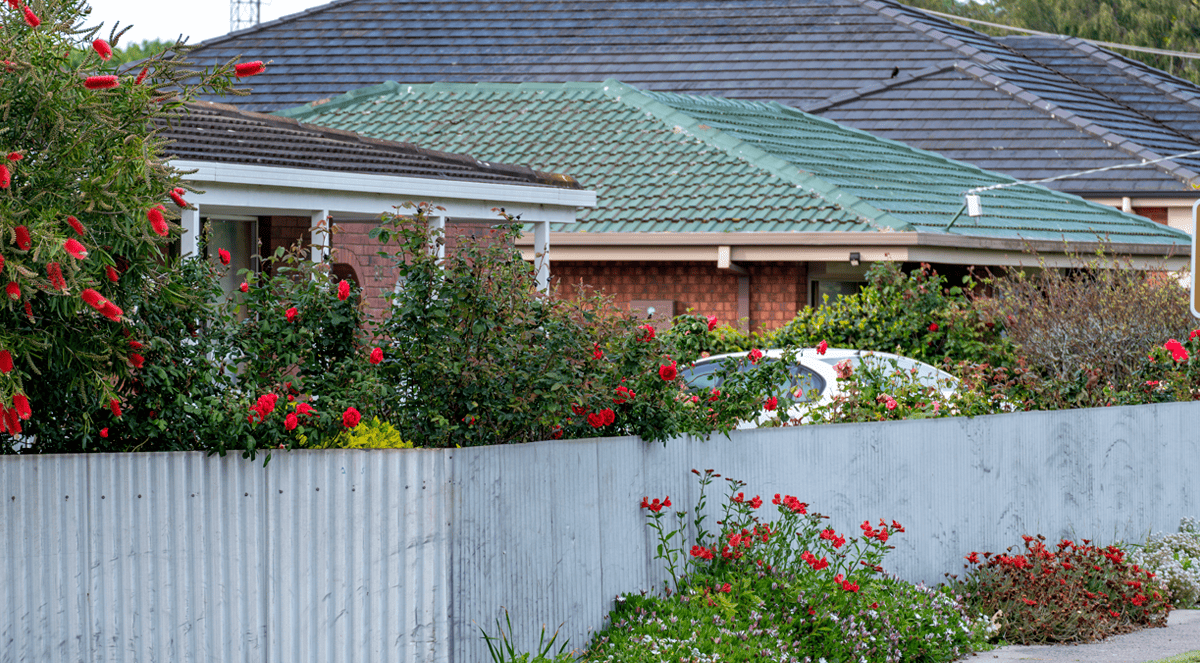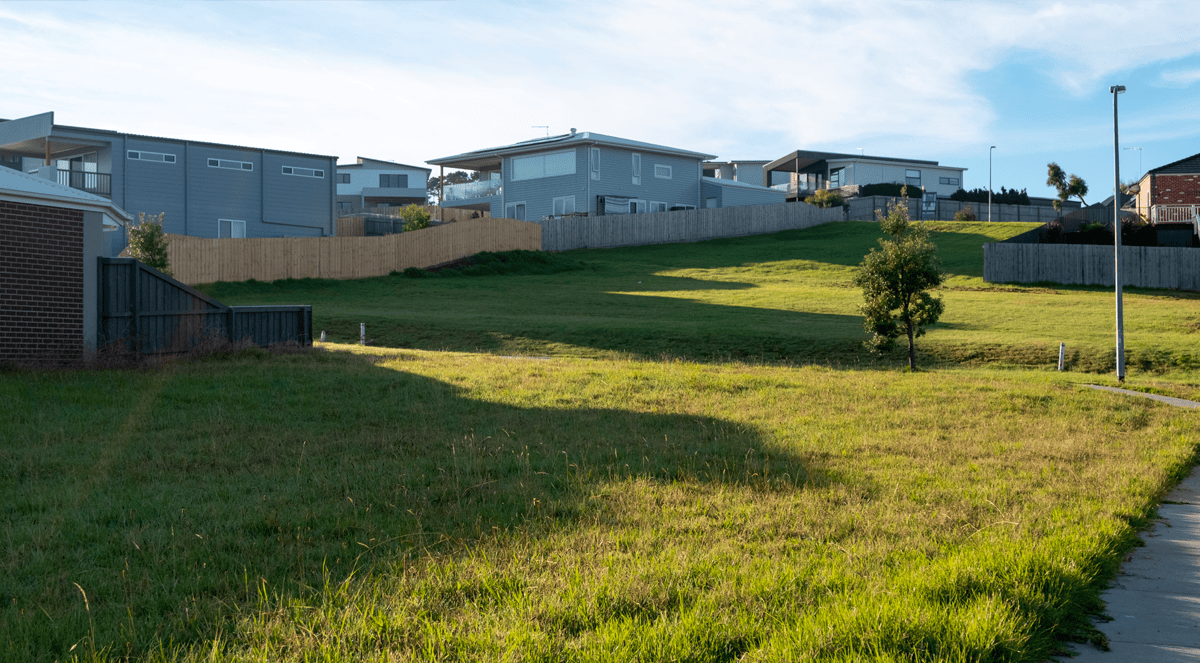Features > Property Education > Investment Tips
Residential vs. Commercial Property Investment: Which Path to Choose?

When it comes to property investment, there are a lot of choices you need to make along the way. Property selection, timing and location are among the biggest. But one of the most pertinent questions you really need to be drilling down into is whether to enter into the world of commercial property versus residential property.
Plenty of people have made money from both, but it's really important that you understand the key differences so that you can execute whichever strategy is better for you.
Key Consideration #1 – How Much Capital Do You Need?
As a rule of thumb, commercial properties typically require a much more substantial capital investment than their residential counterparts. A key factor that you absolutely must be aware of is the way banks value commercial properties.
The value of a commercial property is often determined by the value of its current leases, or that which can be reasonably expected. In contrast, residential property is more often valued according to the asset itself; that is, the value of the land plus the cost to rebuild whatever structures are sitting on it.
Banks will also typically demand a much higher deposit. As a result you might find yourself needing a deposit of around 40% or more for commercial properties, compared to the 5-20% deposit required for residential properties. The lower barrier to entry to the highly profitable residential property market means that you could enter it with as little as $40,000.
Key Consideration #2 – Who Will Rent Your Property?
One of the key factors that drives the number of available tenants is migration. New migrants to Australia will require a place to live long before they're looking for a business to work in. This means we tend to see more pressure applied to the residential property market, and a lag until that translates into demand for commercial properties.
Investing in residential property also grants you access to a vast tenant pool. That combined with rental scarcity in some areas could translate to higher rental income due to increased competition for your property.
Conversely, the tenant pool for commercial properties is more limited. Tenants will have specific needs related to their business, and demand a certain type of property. Furthermore, commercial property demand will fluctuate with the state of the economy, potentially leading to cash flow challenges during economic downturns.
Key Consideration #3 – Are Longer Leases Better?
Commercial properties typically offer longer lease periods, often ranging from 5 to 15 years. This leads some people to think that commercial leases are much more attractive compared to residential leases, which typically last between 6 months and 2 years.
As stated earlier, a commercial property’s value is enhanced by the value of its leases. So a long term tenant not only provides more stable income but also increases the property’s value.
Having said that, you must be aware that right now we are in the midst of a massive rental shortage, so dealing with short term leases is highly unlikely to threaten your cash flow.
Key Consideration #4 – What Are The Maintenance Costs?
Maintaining commercial properties can be costlier due to their larger size and the complexity of systems, such as HVAC and electrical. Residential properties, in contrast, typically incur lower maintenance expenses.
Commercial properties, however, may offer the possibility of net leases, where tenants cover some or all maintenance costs, a feature not commonly found in residential properties.
The Risks of Commercial Property Investment
One of the most substantial risks is related to tenancies. The value of a commercial property is heavily tied to its tenancies, and vacancies can significantly lower the property's perceived value by banks, other lenders and potential buyers.
Why does your lender’s valuation matter? If you lose a tenancy, that means the property’s value, and hence your equity in the loan, has dropped. Should the lender deem that your equity has dropped below the 30 or 40% required threshold of the loan, then they are within their rights to foreclose. Regrettably, this situation has led to the downfall of numerous commercial property investors.
Additionally, the upfront costs of commercial property investments are substantial, often reaching millions of dollars. Maintenance costs are higher, and unforeseen challenges may necessitate third-party expertise, further increasing expenses.
Capital growth for commercial properties is influenced by numerous factors, including business confidence, the economy, and location, making it less predictable. Finally, commercial properties involve higher liability risks, especially when multiple people frequent the premises, demanding more expensive insurance.
Four Reasons Why Residential Property
May Be the Better Choice
Is residential property investment the right choice on your path to financial freedom? Here are four compelling reasons why I think it could be.
Reason #1 – Steady Income
One of the best aspects of residential property is its ability to produce regular, recurring, steady, predictable income around which you can build a wealth portfolio.
As of September 2023, the national vacancy rate stands at a low 1.1%, indicating that the overwhelming majority of residential rental properties have tenants. A rising population, fueled by high overseas migration, creates consistent demand for residential properties, ensuring minimal periods of vacancy.
Reason #2 – Stable Capital Growth
While residential property growth is not entirely immune to external factors, it tends to be more stable and less affected than commercial properties. Long-term statistics show an average growth rate of 6.9% p.a. for dwellings between 1996 and 2023, making residential investments appealing.
Reason #3 – Simplicity
Investing in residential property is straightforward, especially if you've bought a home before.
There is also a lot more information available for residential investors, making research and strategy development straightforward. Residential financing is also generally easier to secure compared to commercial loans.
Reason #4 – Tax Benefits
Residential properties offer various tax benefits, including depreciation claims for installed assets and deductions related to mortgage interest. Negative gearing, where property maintenance costs exceed rental income, can lead to tax savings, reducing your overall tax liability.
Make Your Choice
The road to your ideal wealth portfolio will depend on your circumstances and skillset, and knowing the pros and cons of the residential and commercial property markets will help your decision making. For most newcomers to property investment, residential property is the preferred choice given the greater simplicity, lower barriers and stable capital growth.
Whatever your choice is, at Freedom Property Investors, we help investors build powerful property portfolios. Schedule a one-on-one consultation with a member of our team to learn more.
Stay Up to Date
with the Latest Australian Property News, Insights & Education.




.png?width=292&height=292&name=Copy%20Link%20(1).png)
 SIGN UP FOR FREE NEWSLETTER
SIGN UP FOR FREE NEWSLETTER





%20Scott%20Kuru%20DPU%20147.jpg?width=1920&height=1080&name=RBA%20Warns%20Inflation%20Has%20Pushed%20Australia%20Into%20Household%20Recession%20(Millions%20Face%20Pay%20Cuts%20in%202026)%20Scott%20Kuru%20DPU%20147.jpg)

%20Scott%20Kuru%20DPU%20145.jpg?width=1920&height=1080&name=Senate%20Inquiry%20Forced%20the%20RBA%20to%20Admit%20the%20Housing%20Crisis%20Will%20Never%20Be%20Fixed%20(It%20Was%20All%20a%20Lie)%20Scott%20Kuru%20DPU%20145.jpg)



%20Scott%20Kuru%20DPU%20141.jpg?width=1920&height=1080&name=The%20Senate%20Just%20Exposed%20Australias%20Biggest%20$80%20Billion%20Housing%20Fraud%20(Inquiry%20Launched)%20Scott%20Kuru%20DPU%20141.jpg)




%20Scott%20Kuru%20DPU136.jpg?width=1920&height=1080&name=Aussies%20Just%20Got%20Hit%20With%20Double%20Taxes%20on%20Everything%20(This%20Has%20Gone%20Too%20Far)%20Scott%20Kuru%20DPU136.jpg)


%20Scott%20Kuru%20DPU%20133.jpg?width=1920&height=1080&name=JUST%20IN%20Something%20Major%20Just%20Flipped%20Australia%E2%80%99s%20Property%20Market%20for%202026%20(No%20One%20Saw%20This%20Coming)%20Scott%20Kuru%20DPU%20133.jpg)


.jpg?width=1920&height=1080&name=Rental%20Prices%20At%20Record%20Highs%20And%20Vacancy%20Rates%20At%20All%20Time%20Lows%20(New%20Data%20Reveals).jpg)
%20%20DPU%20EP%2014.jpg?width=1920&height=1080&name=Investors%20Shutting%20Out%20First%20Home%20Buyers%20(Investors%20At%20Record%20Highs)%20%20DPU%20EP%2014.jpg)

.jpg?width=1920&height=1080&name=Darwins%20Property%20Market%20Boom%20or%20Dangerous%20Gamble%20(REVEALED).jpg)

.jpg?width=1920&height=1080&name=The%20RBA%E2%80%99s%20Rate%20Cut%20Could%20Explode%20House%20Prices%20(Here%E2%80%99s%20Why).jpg)








.jpg?width=1920&height=1080&name=Warning%2c%20You%20Might%20Be%20Facing%20Higher%20Taxes%20Soon%20(1).jpg)




.png?width=1920&height=1080&name=Rate%20Drops%20Signal%20BIGGEST%20Property%20Boom%20in%20DECADES%20(1).png)

.jpg?width=1920&height=1080&name=Labor%20vs%20Liberal%20These%20Housing%20Policies%20Could%20Change%20the%20Property%20Market%20Forever%20(1).jpg)
.jpg?width=1920&height=1080&name=QLD%20Slashes%20Stamp%20Duty%20Big%20News%20for%20Investors%20%26%20Home%20Buyers%20(1).jpg)
.jpg?width=1920&height=1080&name=Trump%20Just%20Slapped%20Tariffs%20%E2%80%93%20Here%E2%80%99s%20What%20It%20Means%20for%20Australia%20(1).jpg)
.jpg?width=1920&height=1080&name=Federal%20Budget%202025%20More%20Debt%2c%20No%20Housing%20%E2%80%93%20Here%E2%80%99s%20What%20You%20Need%20to%20Know%20(1).jpg)
.jpg?width=1920&height=1080&name=Australias%20Housing%20Crisis%20is%20about%20to%20get%20MUCH%20Worse%20(New%20Data%20Warns).jpg)
%20(1).jpg?width=1920&height=1080&name=Australias%20RENTAL%20CRISIS%20Hits%20ROCK%20BOTTOM!%20(2025%20Update)%20(1).jpg)
%20(1).png?width=1920&height=1080&name=Is%20Adelaide%20Still%20a%20Good%20Property%20Investment%20(2025%20UPDATE)%20(1).png)
.jpg?width=1920&height=1080&name=RBA%20Shocks%20with%20Rate%20Cuts!%20What%E2%80%99s%20Next%20for%20Property%20Investors%20(1).jpg)
%20(1).jpg?width=1920&height=1080&name=I%20Predict%20The%20Feb%20Rate%20Cut%20(My%20Price%20Growth%20Prediction)%20(1).jpg)
.png?width=1920&height=1080&name=Why%20Property%20Prices%20Will%20Rise%20in%202025%20Market%20Predictions%20(1).png)
.jpg?width=1920&height=1080&name=Why%20Investors%20Are%20Choosing%20Apartments%20Over%20Houses%202%20(1).jpg)
.jpg?width=1920&height=1080&name=Why%20Rate%20Cuts%20Will%20Trigger%20A%20Property%20Boom%20(1).jpg)
.jpg?width=1920&height=1080&name=Retire%20On%202Million%20With%20One%20Property%20(Using%20SMSF).jpg)
.jpg?width=1920&height=1080&name=4%20Reasons%20Why%20You%20Should%20Invest%20in%20Melbourne%20Now%20(1).jpg)
%20(1).jpg?width=1920&height=1080&name=Old%20Property%20vs%20New%20Property%20(Facts%20and%20Figures%20Revealed)%20(1).jpg)
%20(1).jpg?width=1920&height=1080&name=Will%20The%20New%20QLD%20Govt%20Create%20a%20Property%20Boom%20or%20Bust%20(My%20Prediction)%20(1).jpg)
%20Scott%20Kuru%20(1).jpg?width=1920&height=1080&name=Inflation%20Hits%20Three-Year%20Low%20(Will%20RBA%20Cut%20Rates%20Soon)%20Scott%20Kuru%20(1).jpg)
.jpg?width=1920&height=1080&name=How%20to%20Buy%20Investment%20Property%20Through%20SMSF_%20The%20Ultimate%20Guide%20(1).jpg)
.jpg?width=1920&height=1080&name=Victoria%20Slashes%20Stamp%20Duty%20Melbourne%20Set%20to%20Boom%20Scott%20Kuru%20(1).jpg)
.png?width=1571&height=861&name=Are%20Foreign%20Buyers%20Really%20Driving%20Up%20Australian%20Property%20Prices%20(1).png)
.jpg?width=1920&height=1080&name=The%20Single%20Factor%20That%20Predicts%20Property%20Growth%20Regions%20(1).jpg)
%20Scott%20Kuru%20(1).jpg?width=1920&height=1080&name=My%20Prediction%20On%20Rates%20%26%20Negative%20Gearing%20(Market%20Crash)%20Scott%20Kuru%20(1).jpg)

-1.png?width=1920&height=1080&name=Major%20Banks%20Cut%20Rates%20Will%20RBA%20Follow%20Suit%20(Sept%20Rate%20Update)-1.png)
%20Scott%20Kuru-1.png?width=1920&height=1080&name=Rate%20Cut%20Coming%20What%20New%20Zealands%20Move%20Means%20for%20Australia%20(Sept%20Prediction)%20Scott%20Kuru-1.png)
%20(1).jpg?width=1920&height=1080&name=Buy%20when%20the%20interest%20rates%20are%20high!%20(Why%20you%20must%20buy%20now!)%20(1).jpg)
.jpg?width=1920&height=1080&name=Carms_Revised%20Taxes%20Due%20Aug%209%20YT%20Thumbnail02%20(1).jpg)
.jpg?width=1920&height=1080&name=Carms_Too%20Little%20Too%20Late%20Aug%207%20YT%20Thumbnail01%20(1).jpg)









.jpg?width=1920&height=1080&name=Carms_Rate%20Drop%20In%20July%20Jun%2010%20YT%20Thumbnail02%20(1).jpg)
.jpg?width=1920&height=1080&name=Carms_Own%20a%20Property%20V6%20Jun%205_YT%20Thumbnail%20(1).jpg)









.png?width=1920&height=1080&name=Artboard%201%20(3).png)






.jpg?width=1920&height=1080&name=YT%20thumbnail%20%20(1).jpg)


